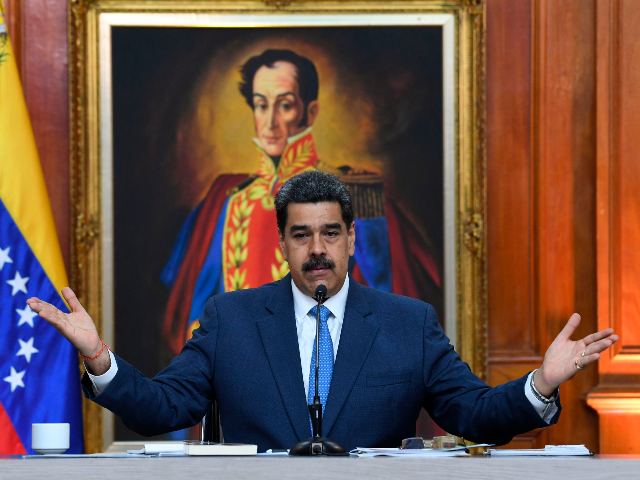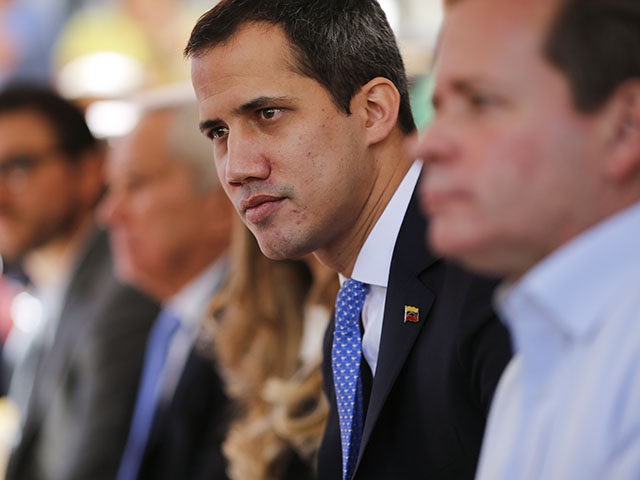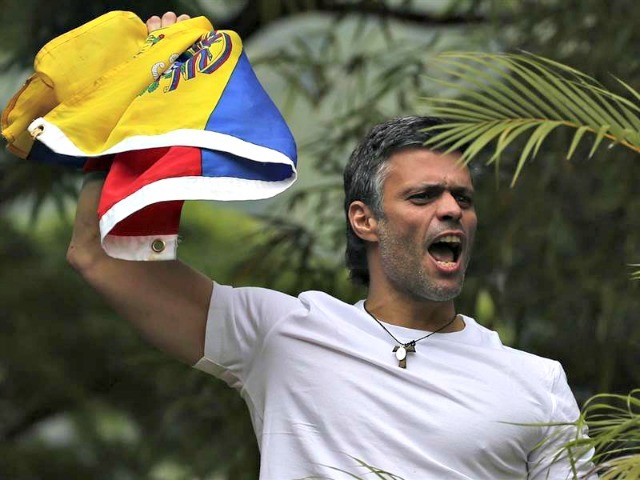CARACAS, Venezuela – Venezuela’s “opposition” parties are planning to dissolve the country’s legitimate interim government led by Juan Guaidó in January 2023, according to a report published by CNN’s Latin American branch, CNN en Español, on Thursday.
CNN en Español’s report cites two unnamed sources which spoke to CNN alleging that the United States is planning to remove Guaidó’s recognition as Venezuela’s legitimate presidency in January 2023.
“This has been negotiated for a long time,” the source said according to CNN.
Venezuela’s legitimate interim government, presided by Guaidó, was established in 2019 by the then opposition-led National Assembly in accordance to the nation’s constitution as a result of socialist dictator Nicolás Maduro’s refusal to step down after holding sham elections in 2018. However, Guaidó’s presidency, recognized by more than 50 countries, failed to exert any sort of power within the country.
With Maduro retaining full control of Venezuela, including its armed forces, Guaidó’s presidency has so far been of a symbolic nature. Thus, the three main goals of Guaidó’s interim presidency – the cessation of Maduro’s usurpation of power, a transitional government, and free elections — were never accomplished.
On Friday, CNN en Español updated the report to add that an unnamed U.S. government staff member told CNN that the United States continues to recognize Guaidó’s interim presidency.
“We continue to recognize the interim government and the Venezuelans who want a peaceful return to democracy. It is up to the interim government to decide if it wants to continue in a recognizable state,” the unnamed staff member said according to CNN.
Juan Guaidó denied on CNN en Español that the United States would stop recognizing his presidency, adding that the U.S. support of the interim government would remain until free and fair elections are held in Venezuela.
“Certainly there is wear and tear as a result of this confrontation with a dictatorship, of this torture, repression, censorship and self-censorship. We understand it well, including frustration for not having achieved today the goal of getting rid of the dictatorship and that the crisis has worsened,” Guaidó said.
In addition to CNN en Español’s report, London’s Financial Times published a separate report on Thursday in which it claimed that a different unnamed source within the Venezuelan “opposition” conveyed similar information to that of CNN’s unnamed sources.
“It has been decided to redesign everything without Guaidó as interim president,” the source allegedly told the Financial Times. “There is an overwhelming conviction among the majority [of Venezuela’s ‘opposition’] that the figure of Guaidó and the interim government is at odds with reality.”
Venezuela opposition parties consider ditching ‘interim government’ https://t.co/4xEGotEL5R
— Financial Times (@FT) October 20, 2022
The Financial Times’ report further claimed that the plan to dissolve the interim government is backed by three of the four main parties that form the Unitary Platform: Justice First, Democratic Action (a member of the Socialist International), and the A New Era party (another member of the Socialist International). The report also states that a spokesman for Guaidó told the British magazine, “there is not a clear position among the groups in the Unitary Platform about the continuation of the interim government.”
The Unitary Platform is the latest iteration of the coalition of “opposition” parties in Venezuela. The coalition, which has rebranded itself several times throughout the more than two decades of chavista rule in Venezuela, is always primarily composed of the same opposition parties.
Leopoldo López, leader of the Popular Will party (also a member of the Socialist International) currently living in exile confirmed to the Financial Times that “there’s been a debate and there’s some support for [scrapping the interim government].”
“We don’t agree,” López added, “We think this would be an unfortunate decision which implies recognition of Maduro.”

Venezuela’s President Nicolas Maduro gestures during a press conference with members of the foreign media at Miraflores palace in Caracas, on February 14, 2020. (YURI CORTEZ/AFP via Getty Images)
Venezuela’s “opposition” parties are notorious for opting to coexist with the Maduro regime, participating alongside the socialist regime in sham elections in 2020. By May 2022, 80 percent of the country had lost all faith in the opposition, concluding that its leadership had completely sold out to the Maduro regime and were not doing anything to stop the socialist dictatorship in Venezuela.
The utter lack of results from Guaidó’s presidency served to disappoint Venezuelan citizens, 90 percent of which no longer considered Guaidó to be Venezuela’s president as of July 2021. Guaidó lost his top diplomat, Julio Borges, in December 2021, who resigned from his position while claiming that the interim presidency “should disappear completely” due to allegations of corruption and inefficiency.
“The interim government has deformed and become a sort of caste and an end in itself, where a space has been bureaucratized that is not fulfilling its reason to be. It needs to disappear completely,” Borges said at the time of his resignation.
The alleged plan to dissolve Venezuela’s legitimate but useless interim presidency at the start of 2023 comes at a time when the Biden Administration has tweaked its policy towards the sheer number of Venezuelan migrants fleeing from the socialist horrors of the Maduro regime — 7.1 million as of September 2022 — with reports of prospective oil sanctions reliefs, highly beneficial to the Maduro regime, allegedly being prepared under the condition that the Maduro regime and the “opposition” resume negotiations towards holding “free and fair” presidential elections in 2024.
The “opposition” Unitary Platform is preparing to hold primary elections in 2023 to determine a “unitary” candidate to participate against Maduro in a “free and fair” 2024 presidential election.
While Guaidó failed to exercise any kind of power within Venezuela, his interim presidency is in control of several Venezuelan assets in foreign countries whose fate would then have to be determined if the interim government is dissolved, such as the South American nation’s embassy and consulates located in the United States, and over 31 tons of Venezuelan gold worth almost $2 billion stored in the Bank of England’s London underground vaults that the London High Court awarded custody to Guaidó’s presidency over the Maduro regime following an ongoing legal dispute between both sides.
The Colombian-Venezuelan Petrochemical company Monómeros, a subsidiary of Venezuela’s state oil industry PDVSA, was also in control of Guaidó’s presidency from 2019 until September 2022, when far-left President Gustavo Petro handed over control of Monómeros to the Maduro regime.
Christian K. Caruzo is a Venezuelan writer and documents life under socialism. You can follow him on Twitter here.


COMMENTS
Please let us know if you're having issues with commenting.